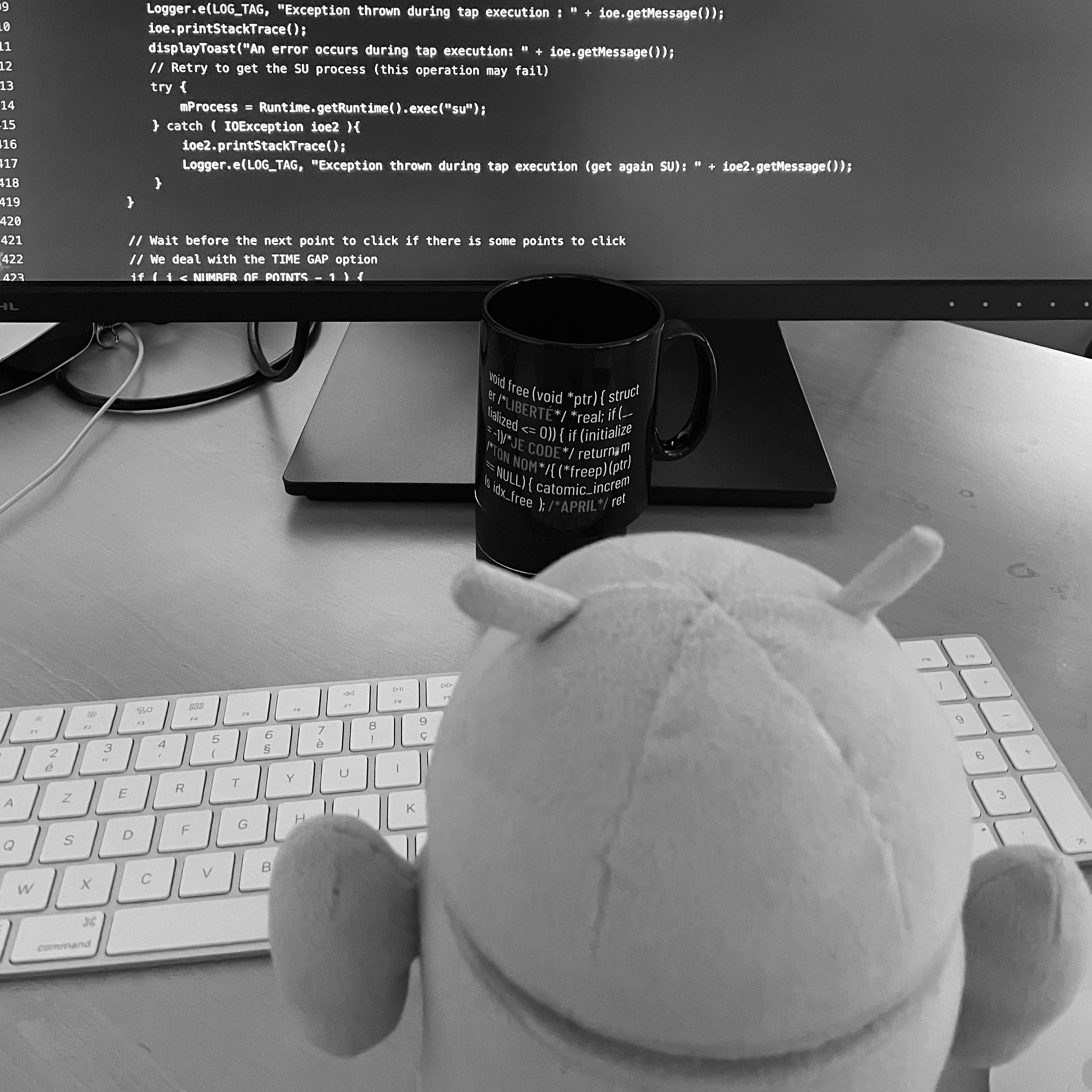Hi all,
Before write what I am about to write, I would like to be clear that this is a very controversial topic and, for the eyes of many of you, this will be even silly.
I also know that open source means “open for everyone”, and any conditional to that automatically makes a piece of software non-open source.
I really feel pissed off to see such effort for brilliant people from open source community being used for terrible things. So I started to nurture the idea of a license that would forbid the usage of a project by totalitarian governments, including its department and contractors, military forces of any country, certain entities like radical political parties, etc. Basically limiting the usage of those projects to any activity promoting human suffering.
Do you guys think that this is utopic? Does it really hurt the essence of open source? Do you think in the same way about this, and if yes, how do you cope with that?
I think one has to cope with it the same way the inventor of the ice pick had to cope with Walter Jackson Freeman II. You can’t really control what people do with your tools. If you think someone actively destroying lives will bend to the whims of a license, that’s cool. I wish I had that level of optimism. Right now it’s still pulling teeth to get companies to respect GPLv3.
For what it’s worth, there’s an FSF article that addresses this:
https://www.gnu.org/philosophy/programs-must-not-limit-freedom-to-run.html
Whether it’s persuasive is of course up to you to decide ;).
Licenses don’t stop bombs. In general, informational freedoms always benefits the stronger actor, because they already have the means to exploit the information better than other actors. Legal restrictions are just a bump in the road if what you produced is really really valuable for a corporation or a state entity: they can reimplement it, exploiting the design and “trial-and-error” work embedded in whatever you produced, or they can simply ignore licenses because nobody is going to ask the Israeli’s military to respect a license when they are slaughtering civilians.
Social problems never have technical solutions.
If you want to make software that is not captured by state or corporate power, you must create software that is incompatible with whatever they need to do. Embed a social logic that is worthless to their system but useful to our system. Anything else is eventually going to be captured. There’s a lot of literature on anti-capture design, and some of it manages to rise above the purely techno-optimist logic and provide something useful.
I think this is not exactly the point. I never thought that license would fight rocket. Nor I thought that an authoritarian regime would respect license.
The first point affects more countries and companies that still keep ties with those regimes.
The second point is to have a clear position. For me it is hypocritical to say “open source for a better world” at the same time that we say “how my contributions are used is not my problem”.
I bet with you that commo libraries like slf4j, junit, poetry, fastapi, etc. are being used by those regimes and their associates very often. Make a license more restrictive would create legal problems for any legitimate foreign entity to buy from those regimes. If they opt to re-inplement those libraries, it’s fine as well: tons of resources and money expended by those jerks.
Even commercial licenses are problematic to enforce, I know. But send a clear message seems a point where our hands can reach and worth to pursue.
the logic that sending messages alters political reality is part of the overall problem. Politics is a conflict of forces, not a conflict of ideas or opinions. A license is as powerful as the will of the state power behind it to enforce it. Otherwise, it is powerless.
If you want to make sense of the political world, I invite to move beyond the idea of “taking stances” or expressing positions as a political act, and reason instead of what incentives and powers you’re altering with your political actions.
What you describe just does not play out in real life: neither on a micro scale nor on a macro scale.
There’s a lot of literature on anti-capture design
Could you please point me to some links? I was unable to find anything on a cursory internet search, all the results were about preventing screen grabs
This is a good starting point: https://trent.mirror.xyz/GDDRqetgglGR5IYK1uTXxLalwIH6pBF9nulmY9zarUw
Did you have a look on ethical licenses? For example, Coraline Ada Hemke who created the Contributor Covenant (famous code of conduct) started few years ago the Organisation for Ethical Source promoting “ethical” licenses defined by seven principles.
So in fact this third family of licenses is not open source nor free (as defined by OSI and FSF), nevertheless I feel some needs or willings in your side to go, let’s say, “one step further”.
In ethical licenses you can find for example 999 ICU, ACAB, Anti-Capitalist, Peer Production, Hippocratic or some BSD 3-Clause variants about nuclear topics.
You can also have a look on that slidedeck (in French, sorry).
Who would enforce it
When I was younger, I once imagined a universal court which would be above all supreme courts, but without any government backing or any force to enforce.
The sole criteria it would have is that the case before it has been studied by supreme court of any nation, and ruled in violation the principle this court observes. This court would then study the case and then rule punishment to the accused AND penalty to the erring judge of the supreme court. The enforcement of its will shall happen in the good old American way of bounties and bounty hunting.
It was quite detailed, but the relevant crux here is that enforcing justice doesn’t need dedicated manpower or government backing.
However, a specified court/judiciary is definitely required for a legal recognition.
You’re describing a state
No. I am describing a global system that goes beyond state.
deleted by creator
It’s been tried before, usually as a joke. Kids magazines that say “not for sale to adults”. Gaming mods that make you pledge your first born to the developer. To work, the laws of the country the user is in will apply, and will have to be enforced.
I don’t think it’s useful to directly compare the GPL. It’s often disrespected, yes, but it’s also often enforceable. If you violate the GPL in a for-profit product, you might be someone the courts have jurisdiction over and the license is enforceable. It is sometimes enforceable and therefore useful. In OP’s proposal, the only target of it I see as viable is the “radical parties”. All those other targets are pretty out-of-reach.
As a side point, GPL, along with MIT, CC0, WTFPL, etc., would still be somewhat useful regardless because they forfeit rights. I can modify and republish the software publicly because I’m confident I can’t legally be sued for it.
deleted by creator
The reason we aren’t enforcing what OP is proposing is because it doesn’t exist, so no enforcement apparatus exists. Why would it?
Our legal systems already recognize and have some mechanisms to enforce contracts and licenses. We don’t need to build a whole new one for each license. But our existing copyright system already fails to enforce itself in certain countries and with certain entities (e.g. military) and I just can’t see that changing.
deleted by creator
Do you guys think that this is utopic? Does it really hurt the essence of open source? Do you think in the same way about this, and if yes, how do you cope with that?
I do think it’s utopian and I can’t see it being effective, but you do raise a good question: “Does it really hurt the essence of open source?”
I see open source through a pragmatic lens, not some untouchable liberalist moral right. I’m not the kind of person who says “We should hand power over to the fascists since they did win the vote this time”, or “Nazis have a legal right to be here, stop harassing them!”. Helping people in reality is more important than trying to implement abstract ideals consistently. So, when push comes to shove, I don’t really care about the essence of open source. One could claim that copyleft (e.g. GPL, CC-SA) violates the liberty of companies to use code freely. Yes, it does violate their liberties, but that’s a good thing. That’s the whole point, in fact. It’s a pragmatic compromise away from some abstract ultimate freedom, making it something that actually empowers us and avoids helping those exploiting us as much. And you’ve taken a similar theme - while I disagree with some of the entities you’ve chosen, I agree with your attitude. The essence of open source isn’t real, it can’t help us.
It would require being couched in some kind of international law, and there really isn’t one that applies to all countries
While this seems very optimistic, maybe even utopic to me, I think you should do it anyway. If it stops even one party from doing something malicious, it’s better than not having the license at all. I don’t know if it’ll be worth your time in the end, but might you might as well try!
Projects like Bitcoin and Matrix are what’s going to fix these countries, not a license.







